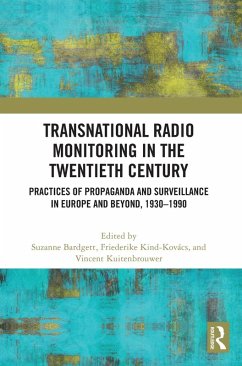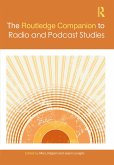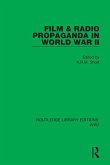Radio monitoring is an important feature of broadcasting history and monitoring reports form a treasure trove for historians. This volume offers six case studies that provide new insights on the importance of radio monitoring during the Second World War and the Cold War.
Radio broadcasting is not only about transmission, but also about listening. From the start of the medium's history, radio organisations institutionalised services to monitor the broadcasts of stations from all over the globe and write daily reports about them. This act of listening provided valuable information about the situation in various parts of the world or insights into the communication strategies of broadcasters. As a result, collections of monitoring reports are bulky, containing countless documents which form a treasure trove for radio historians. At the same time researchers need to be aware that these sources are far from neutral: monitoring services often serve clear geopolitical objectives in context of conflict situations. This volume explores the rich history of radio monitoring during the Second World War and the Cold War. As such it offers original case studies that shed light on previously unknown radio histories. Moreover, all the authors reflect on the use of monitoring reports as a historical source and as such provide methodological guidelines.
This volume will be a key resource for academics, researchers, and advanced students of media history, war studies, media studies, sociology, and cultural studies. It was originally published in Media History.
Radio broadcasting is not only about transmission, but also about listening. From the start of the medium's history, radio organisations institutionalised services to monitor the broadcasts of stations from all over the globe and write daily reports about them. This act of listening provided valuable information about the situation in various parts of the world or insights into the communication strategies of broadcasters. As a result, collections of monitoring reports are bulky, containing countless documents which form a treasure trove for radio historians. At the same time researchers need to be aware that these sources are far from neutral: monitoring services often serve clear geopolitical objectives in context of conflict situations. This volume explores the rich history of radio monitoring during the Second World War and the Cold War. As such it offers original case studies that shed light on previously unknown radio histories. Moreover, all the authors reflect on the use of monitoring reports as a historical source and as such provide methodological guidelines.
This volume will be a key resource for academics, researchers, and advanced students of media history, war studies, media studies, sociology, and cultural studies. It was originally published in Media History.








